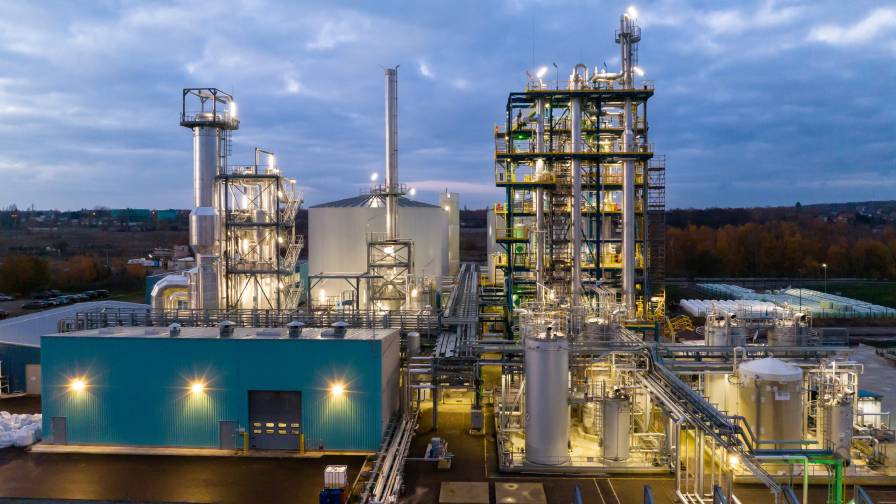Importing Insight from the Global Crop Inputs Industry
The challenges facing the crop input industry are straightforward, but the solutions aren’t necessarily simple. Sourcing and the related issue of pricing continue to be major concerns as the industry also contends with the U.S.-China trade war, concern over the future of U.S./India relations, product bans, and weather.
So, what are importers to do?
AgriBusiness Global™ magazine interviewed industry experts from across the supply chain to learn how they’re dealing with these issues. The availability of raw materials and where they will come from seem to be the main concerns for many that need to import product.
Jim DeLisi, Owner of Fanwood Chemical Inc., said continued uncertainty vis-a-vis China, from an environmental point of view as well as tariffs, is a concern. “There are also concerns about a possible breakdown in the trading relationship with India,” he said.

CS Liew
That uncertainty ripples throughout the supply chain. “The continued price fluctuations and non-availability of some products due to the ongoing disruptions in key raw material supplies,” said C S Liew, the Managing Director for Pacific Agriscience.
Much of that worry comes from the disruptions and reorganization going on in China due to the crackdown on companies violating environmental regulations. “Our main challenge going into 2020 is inventory positioning and pricing; (we’re focused on) having the right products (and right amount) on hand at a market-competitive price point,” Kevin Fry, President, Fry Brothers Fertilizer and Chemical, said. “We had issues last year with glyphosate, clethodim, and bifenthrin, to name three. We also had challenges with corn and soybean pre-herbicides, as farmers and dealers were uncertain of planting acres unusually late this year. This could be an issue again in 2020.”
There could also be finance challenges, Fry said. “I believe some dealers are experiencing higher accounts receivable than usual and will be trying to get accounts squared up this fall and winter,” he said. “There could be issues with producer/dealer operating capital going into 2020.”
The U.S.-China trade war certainly makes doing business a bit more challenging. To a lesser degree, perhaps, the Brexit mess could have an effect on the industry. But everyone expects these issues to come to some sort of resolution relatively shortly. Other developing factors could have more long-term effects on the industry.

Melinda McCann
Melinda McCann, NA Business Development and Strategic Sourcing Manager for Adama, lists three issues that should have a more permanent impact: global elections; product bans; and regulatory restrictions. Uruguay, for example, held an Oct. 27 election, and the only guarantee, says Uruguay-based Nicolas Potrie, Director, Tafirel, is that the candidate who eventually won that election will increase the focus on more environmentally sound pesticides, ban some products outright, and push for more efficient products.
The trade war may end soon, but the closure of manufacturing plants in China could have a lasting impact on the industry as more companies explore sourcing from countries outside China. India is the country to which many seem to be turning, but there are challenges. Ramping up production is far easier said than done.
Subhra Jyoti Roy, Vice President of International Business, Rallis India, said “alternates to China will evolve” and that “India will play a major role.”

Steven Pearce
Stephen Pearce, Director, AWP Associates and Bancella Ltd., listed five factors that could disrupt the current import situation:
- More supplier-backward integration and consolidation of manufacturing base in China.
- A diminishing role and place for certain types of traders.
- A wait-and-see mindset related to U.S. purchases based on electoral aspiration of the current administration and a potentially softening position with China.
- Ongoing revocation of active ingredients in Europe.
- Move toward alternate methods for burndown in Brazil based on the paraquat ban. Alternate option development for desiccation in Europe based on the diquat ban.
On the other hand, sometimes disruption generates a positive, if unexpected, result. “The only positive market shift is it looks like there will be some softening of non-commoditized products coming out of China and India,” AgraCity President Jason Mann said.
Whether they’re long- or short-term problems, the companies that solve those problems will be the ones that grow. “We are trying to stay closer to market information in the offseason, so we don’t get surprised with sudden changes in supply, suppliers, and pricing,” Fry said. “We are also looking at some different supply partners and ways to work together.
“We need to make sure we communicate with our suppliers, so we have a better handle on how they are scheduling product production. And, as usual, we will need to have an alternative supply chain if our main supplier for a particular product can’t cover our needs.”






